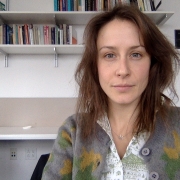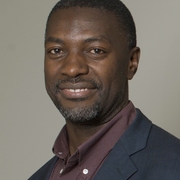- Level Professional
- Duration 22 hours
- Course by United Cities and Local Governments of Africa
-
Offered by

About
Climate change poses a threat to economic growth and long-term prosperity of many countries around the world. Africa is not an exception, considering the actual and potential impacts of climate change and climate variability that will threaten its vulnerable sectors and human populations. African countries are projected to experience changing rainfall patterns, rising sea levels, and higher temperatures that will affect food security, agricultural production, water availability, and public health, among others. These climate change impacts and climate variability can further produce social and political problems, such as rural-urban migration and water resource disputes. Furthermore, the low levels of development in many African countries, as well as limited institutional, infrastructural, and technical capacities to respond successfully to climate change impacts and climate variability, can exacerbate the situation. In terms of contribution to greenhouse gas (GHG) emissions, although African countries are the lightest polluters, it has also become apparent that alternative energy sources can offset the increasing energy demand and dependence on biomass. Addressing climate change offers possibilities for low-carbon development. Moreover, there are promising mechanisms that can address both climate change actions and development goals simultaneously. At the city level, strengthening resilience, or the ability to respond to and absorb the effects of a hazardous event in a timely and efficient manner and to sustain this ability in the future, and adaptation; the process of adjusting to actual or expected climate change stimuli or their effects, should be at the forefront of planning. Local governments have an important role to play through the provision of adequate infrastructure, regulation of land use, and other public services that are crucial for urban resilience. Mobilizing local governments, in collaboration with national governments, non-governmental organizations, and international organizations, among others, is also critical for an integrated multi-sectoral approach to climate change. The Course on Planning for Climate Change in African Cities provides the foundation for understanding cities’ exposure and sensitivity to climate change, and how cities can manage these impacts in the face of growing uncertainty. It does so by introducing the basic concepts of urban resilience and adaptation, by using illustrative case studies in different African cities. Furthermore, this module provides lectures on the different approaches for climate change planning, whether ad hoc, strategic or mainstreaming; introduces the different steps in the planning cycle – from initial assessment to monitoring and evaluation; and presents the different decision support and assessment tools for prioritizing climate change actions. This course broadens the discussion on planning for climate change by engaging learners to apply their knowledge and practice their decision-making skills in a simulated exercise. In line with development that minimizes the harm caused by climate change impacts, while maximizing the many human development opportunities presented by a more resilient future, we ask: what are the connections between urban risk and vulnerability? How is climate change and urban resilience conceptualized and applied in practice? Which policies and measures should be introduced to address climate change? Finally, how to choose among different measures that address climate change adaptation, urban resilience, and other development objectives? Course Objectives: At the end of this course, learners should be able to: • Recognize the effects, impacts, and drivers of climate change in cities • Understand the drivers of urban risk and vulnerability in the context of climate change • Distinguish the typologies, approaches, and tensions of climate change adaptation • Explain the different approaches and steps in climate change planning • Examine the decision support and assessment tools for climate change • Develop a climate change plan based on participants’ city contextsModules
Course Introduction
1
Discussions
- Introduce Yourself
1
Videos
- Video Introduction
4
Readings
- Course Description and Objectives
- Grading System
- Get to know your lecturers!
- Glossary of Terms
Overview of our changing climate
3
Videos
- Climate Change Science
- Climate Change Sources
- Climate Change Effects and Impacts
The relationship between climate change and cities
3
Videos
- Urbanization and Climate Change
- Urban Drivers of Greenhouse Gases
- Climate Change Effects and Impacts on Cities
What is being done against climate change internationally?
1
Videos
- Climate Change Policies
Discussion Board Topics
5
Discussions
- Where are you from?
- Provide at least one explanation why greenhouse gas emissions affect emitters and non-emitters alike.
- The rise of environmental refugees
- What is your city’s carbon foot print?
- The UNFCC Convention
Readings Materials
1
Readings
- Recommended Readings for Week 1
Self-Assessment
1
Assignment
- Test Your Understanding of Week 1!
Understanding urban risk and vulnerability
2
Videos
- Introduction to Defining Risk and Vulnerability
- Approaches to Climate Change Vulnerability
1
Readings
- Reading Materials for "Approaches to Climate Change Vulnerability"
Social vulnerability in theory and practice
2
Videos
- What is social vulnerability?
- Practical Examples of Calculating Social Vulnerability
2
Readings
- Reading Materials for video on "What is social vulnerability?"
- Reading Materials for "Practical examples of Calculating Social Vulnerability"
Consequences of climate change in the African continent
1
Videos
- Risk and Vulnerability in African Cities
1
Readings
- Reading Materials for Video 5"Risk and Vulnerability in African Cities"
Discussion Board Topics
4
Discussions
- Life in a Nairobi slum
- Vulnerabilities and Geographies
- Climatic hazards and different social groups
- 'Climate Departures' in your city
Self-Assessment
2
Assignment
- Test Your Understanding of Week 2!
- Calculating Social Vulnerability
1
Readings
- Introduction to Calculating Social Vulnerability Quiz
Introduction
1
Videos
- Introduction to Climate Change Adaption and Resilience
Differences in adaptation responses
2
Videos
- How do cities adapt to climate change? Reactive adaptation
- How do cities adapt to climate change? Anticipatory adaptation
1
Readings
- Reading Materials for "Differences in adaptation responses" sub-section
Conceptual tensions in urban resilience
3
Videos
- Climate Adaptation: different contexts and approaches
- Conceptual tensions of urban resilience
- Urban climate resilience: from conceptual tensions to practice
1
Readings
- Reading Materials for "Conceptual tensions in urban resilience" sub-section
Governance of urban risk reduction
2
Videos
- Governance to reduce urban risk
- Key actors in reducing urban risk
1
Readings
- Reading Materials for "Conceptual tensions in urban resilience" sub-section
Climate change actions in Africa
1
Videos
- Climate and resilience programs in African cities
Discussion Board Topics
6
Discussions
- Reactive anticipatory adaptation actions
- The distribution of climate impacts
- Translating the concept of resilience to the social realm
- Carbonn Climate Registry
- Governing risk and vulnerability
- Agents of ‘governance’
Self-Assessment
1
Assignment
- Test Your Understanding of Week 3
Approaches cities can take to mitigate and adapt to climate change
2
Videos
- Introduction to Planning Approaches for Climate Change
- Adhoc, strategic and mainstreaming approaches
What are the main steps for climate change planning?
1
Videos
- Main Steps of Planning for Climate Change
Practical examples in an African city context
3
Videos
- Planning for climate change in Kampala, Uganda
- Climate Change Mitigation in Kampala City
- Urban Adaption in Action: Experiences from Kampala
What are the common barriers in implementation?
1
Videos
- Barriers to Implementation of Climate Change Actions
Which principles can guide climate change action planning?
1
Videos
- Guiding Principles for City Climate Action Planning
Readings
1
Readings
- Recommended Readings for Week 4
Discussion Board Topics
4
Discussions
- Your city's CCAP
- Different climate change planning approaches
- The Uncertainties of Climate Change
- Implementing Climate Change Actions
Self-Assessment
1
Assignment
- Test your understanding of Week 4!
Introduction to decision making analysis in climate change
1
Videos
- Introduction to Decision Support and Assessment Tools for Climate Change
Cost effectiveness analysis for adaptation and mitigation
3
Videos
- Cost Effectiveness Analysis for Adaptation
- The economic case for low carbon development
- Climate change planning in Kigali, Rwanda
Deciding between different actions using multiple criteria
1
Videos
- Multiple criteria analysis
How is MCA different from cost effectiveness and cost benefit analyses?
1
Videos
- Which decision support tool to use?
Practical applications of MCA in global cities
1
Videos
- Examples of MCA application
Readings
1
Readings
- Recommended Readings for Week 5
Discussion Board Topics
4
Discussions
- Limitations of applying CBA
- Applications for CEA
- Low carbon development in Kigali
- MCA in your country
Self-Assessment
1
Assignment
- Test your understanding of Week 5!
Final Assessment: Developing a Climate Change Action Plan using the Climact Prio tool
1
Peer Review
- Climact Prio - Prioritizing Adaptation Actions
1
Discussions
- Prioritization with CLIMACT Prio
3
Videos
- Initial list to feasibility assessment
- Choice of criteria and impact assessment
- From Weighting Criteria to Final Results
1
Readings
- Instructions for the Individual Assignment
Acknowledgements
1
Readings
- Acknowledgements
Auto Summary
"Planning for Climate Change in African Cities" is a professional-level course in the Science & Engineering domain, led by Coursera. It delves into the challenges and responses to climate change in African cities, focusing on urban resilience and adaptation. The course covers key concepts, planning approaches, and decision-making tools through lectures and case studies. Spanning 1,320 minutes of content, it equips learners to develop climate change plans for their cities. Ideal for professionals, it offers a foundational understanding of urban risk, vulnerability, and mitigation strategies with a Starter subscription option.

Veronica Olivotto

Dr. Shuaib Lwasa

Prof. Andy Gouldson

Marcus Mayr

Dr. Stelios Grafakos

Dr. David Dodman

Dr. Diana Reckien

Dr. Nathalie Jean Baptiste


